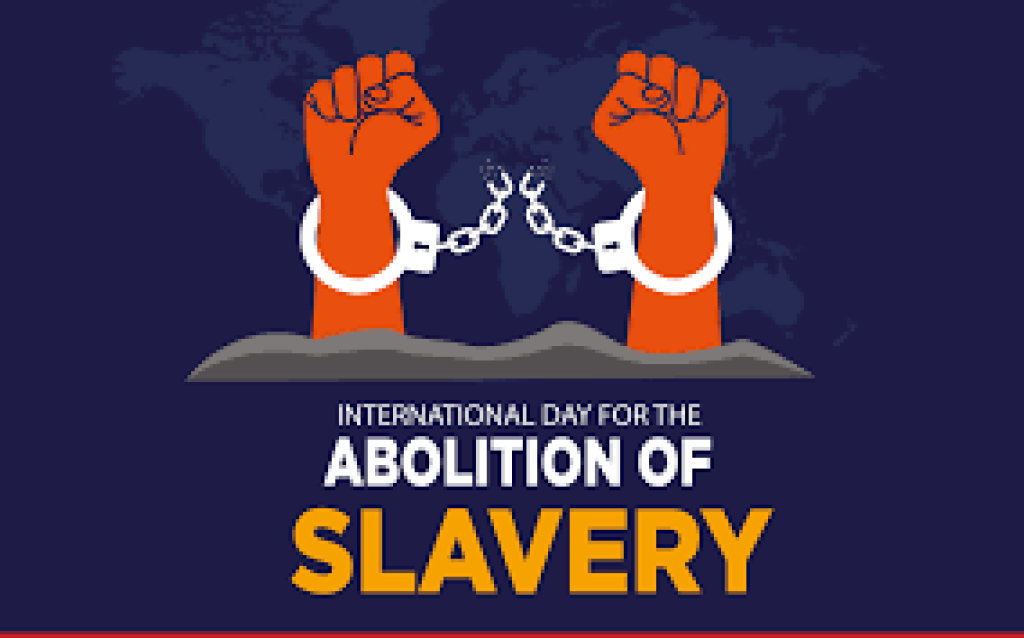International Day for the Abolition of Slavery 2023

Understanding the Historical Context of Slavery
The International Day for the Abolition of Slavery, observed annually on December 2nd, marks a significant moment in global history. It is a day dedicated to remembering and acknowledging the brutal history of slavery and the ongoing impacts of its legacy. The day originates from the United Nations General Assembly’s adoption of the Convention for the Suppression of the Traffic in Persons and the Exploitation of the Prostitution of Others on December 2, 1949. This day serves as a poignant reminder of the enduring struggle against slavery and its modern forms.
The Evolution of Slavery: From Past to Present
Historically, slavery was a systematic institution where individuals were treated as property, bought, and sold, often enduring unimaginable hardships. This practice dates back thousands of years, spanning numerous civilizations and cultures. However, modern slavery has taken different forms, including human trafficking, forced labor, and the exploitation of children in various industries. Today, it is a hidden crime that affects millions globally, transcending borders, ages, and nationalities.
Global Efforts in Eradicating Slavery
In response to this ongoing crisis, international organizations and governments worldwide have implemented various measures aimed at combating modern slavery. The United Nations, through its agencies like the International Labour Organization (ILO) and the United Nations Office on Drugs and Crime (UNODC), has been at the forefront of these efforts. They work towards enforcing labor standards, raising awareness, and supporting victims. National governments have also been instrumental in enacting laws and creating task forces to address these issues within their borders.
The Role of Awareness and Education
Raising awareness and educating the public about the realities of modern slavery is vital in combating this issue. Awareness campaigns, educational programs, and community involvement are crucial in identifying, preventing, and reporting instances of slavery. These initiatives also play a significant role in changing societal attitudes and behaviors that perpetuate slavery.
The Impact of Technology in Combating Slavery
Advancements in technology have provided new tools in the fight against slavery. From blockchain to enhance supply chain transparency to AI-driven platforms for identifying victims, technology is proving to be an invaluable ally. Social media and digital platforms also play a significant role in spreading awareness and mobilizing support against slavery.
Challenges in Eradicating Modern Slavery
Despite significant progress, numerous challenges remain in the fight against modern slavery. These include insufficient funding, lack of accurate data, corruption, and the hidden nature of these crimes. Addressing these challenges requires a multi-faceted approach, involving cooperation between governments, NGOs, the private sector, and civil society.
The Power of Collective Action
Collective action is fundamental in the fight against slavery. This involves partnerships between various stakeholders, including governments, international organizations, NGOs, the private sector, and the general public. By working together, these groups can share resources, expertise, and strategies to make a more substantial impact.
Remembering the Victims
On the International Day for the Abolition of Slavery, it is crucial to honor and remember the victims of slavery, both past and present. This day is not only about acknowledging the dark history of slavery but also about recognizing the resilience and strength of those who have suffered and continue to suffer under its yoke.
Looking Forward: The Path to a Slavery-Free World
The journey towards a world free of slavery is ongoing. It requires sustained effort, commitment, and a global understanding that slavery in any form is unacceptable. As we commemorate the International Day for the Abolition of Slavery in 2023, let us renew our commitment to this cause and work towards a future where freedom and dignity are universal rights.
In conclusion, the International Day for the Abolition of Slavery serves as a crucial reminder of our collective responsibility to combat slavery in all its forms. Through education, awareness, technology, and collective action, we can make significant strides towards eradicating this heinous practice. Let us stand united in this fight for freedom and justice for all.
Important takeaways for all competitive exams:
- International Labour Organization (ILO) Headquarters: Geneva, Switzerland;
- International Labour Organization (ILO) Head: Gilbert F. Houngbo;
- International Labour Organization (ILO) Established Year: 1919;
- United Nations Office on Drugs and Crime (UNODC) Headquarters: Vienna, Austria;
- United Nations Office on Drugs and Crime (UNODC) Head: Ghada Waly;
- United Nations Office on Drugs and Crime (UNODC) Established Year: 1997.